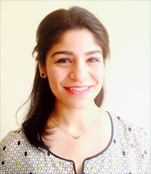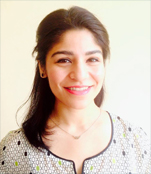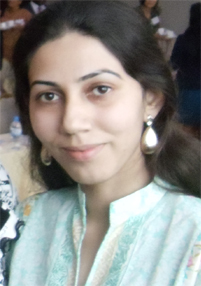Encountering Women Power - Mobilization For The Accelerated Program, Mardan (March 14th, 2018) Posted By Dr. Baela Raza Jamil (CEO Idara-e-Taleem-o-Aagahi)
“We shall absolutely ALL vote in the coming general elections!” they spoke in spontaneous chorus; they also shared their preferred party! These group of women in Gul Abad village Mardan district, were indeed very perky. They demanded ‘what about our needs for literacy and numeracy, why are we being ignored?”. They fully endorsed their young girls and boys who are not in school to be provided support through the accelerated learning and catch up program or “CPB” being offered in almost 1000 locations of Mardan. The community activist had done a great job as the women were already well informed about the program and quizzed the team about “why just a 45-50 days program, why not more -especially since our girls who have not attended schools for some time or never been to one have become a bit rusty?’
The learning program under discussion at the community meeting in Gul Abad is a fast track one, that uses a combined action for learning (CAMAL) methodology customizing for each child or ‘teaching at the right level (TARL)’ . A child is assessed, one on one to ascertain the level of current literacy and numeracy competency. Once this is established the child is placed in groups of level I and level II initially as the start off point after the baseline is established. There are 3 rounds of immersion learning of 15 days each with a midline and end line assessment undertaken to assess the ‘learning gains and/or challenges”. The pedagogy is precise and disciplined, each day for each subject, i.e. Urdu, English and Arithmetic. The children learn in a large group, small groups and individually where the principles of “listening, observing and speaking” are at the core of the interactions across the children and the facilitator or para teacher/volunteer. Active learning takes place on many surfaces at the CPB: on the floor, the black/white board, the exercise book and the mind above all, repeating routines predictably and yet with complete engagement of the learners- co-creating learning patterns with good outcomes. Each hour for each subject, each day taught in the camp is iteratively divided in 15 minutes for large group including warm up and learning (teacher led-introducing the topic), 30 minutes learning in small groups, and 15 minutes at individual level. Each learning camp has 40 learners aged 6-12 so that when they catch up, they can be mainstreamed on merit in local schools.
For CPB camps in Mardan and DI Khan, the learning locations are government school spaces (if rooms are available during the day or immediately after school hours). Just like the ladies in the home at the Gul Abad village were welcoming, the Elementary and Secondary Education Department has been very supportive in hosting the program at their schools. Idara-e-Taleem-o-Aagahi (ITA) the implementing organization known for the nationwide assessment Annual Status for Education Report (ASER) is keen to set examples of good practice in learning so that the ASER assessment leads to suitable and timely action- one that is witnessed by everyone for its content, method and outcomes.
At Gul Abad the teacher and volunteers had been mobilized – eager to the core – whilst the teacher is paid a modest honorarium for the 3 hour daily camp. Nighat and Shabnam were young mothers, activists from their communities instigating progress and change. The volunteer agreed to set up a small library at her home for students at her village to come and review their lessons and read books, so that they have additional time to learn and reinforce. Such enthusiasm from the women at the village was most reassuring for us. They made us think about offering a second chance program; and yes above all they were the antithesis of the stereotypical image held about women in KP, so contemporary in their mind sets, and so ready for owning the action.
Disclaimer: The views expressed here are those of the authors and do not necessarily represent the views of Idara-e-Taleem-o-Aagahi (ITA)





